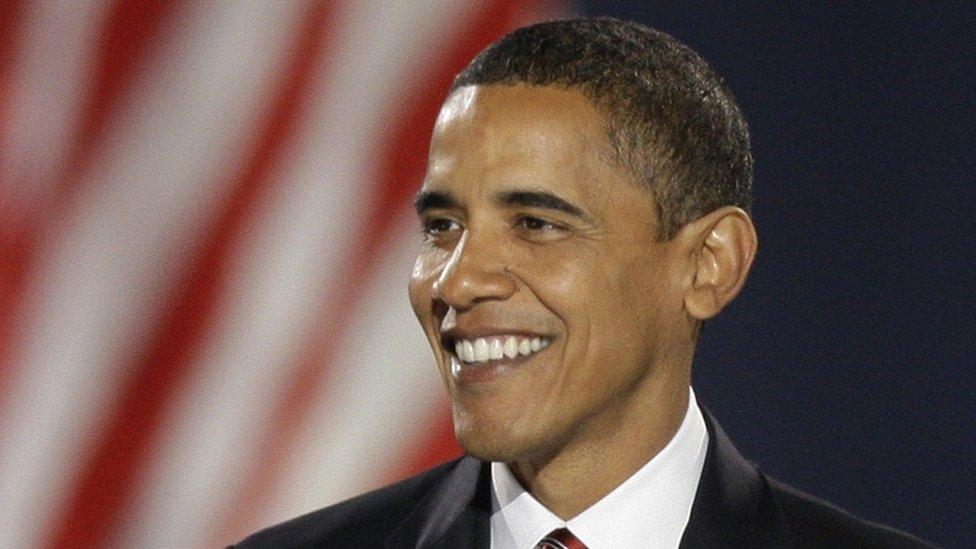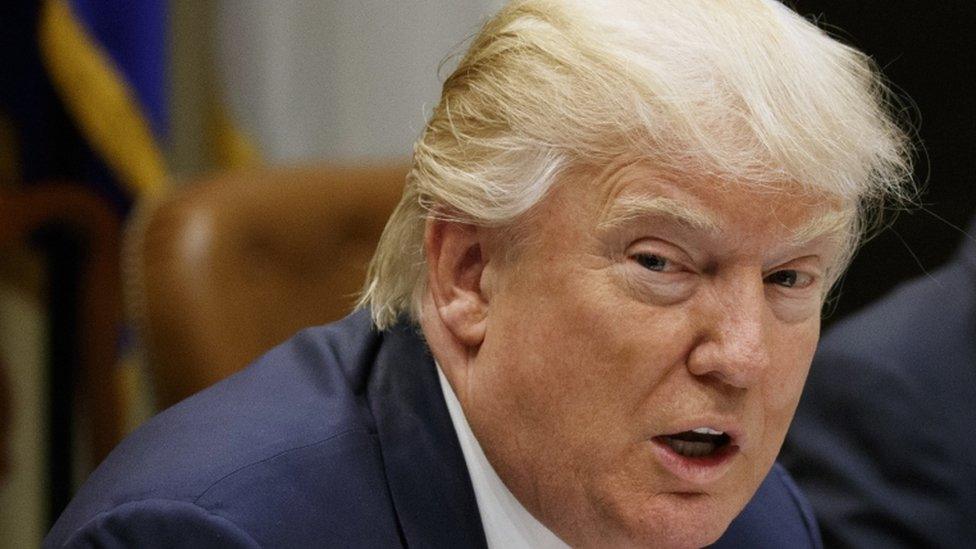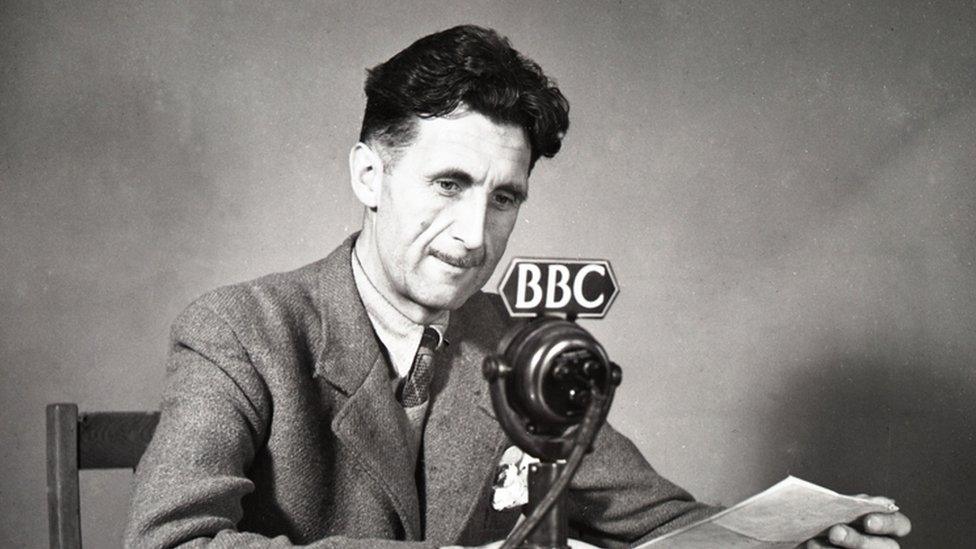Is the reporter an endangered species?
- Published

Last of the line?
I have a theory that every US election since the turn of the millennium is driven by a new form of digital media.
Moreover, the evolution of this media indicates a growing threat to the traditional role of reporters and editors.
I should say at the outset that this theory, which grew out of conversations I had in Chicago when Barack Obama was elected in 2008, is certainly not mine alone.
I've discussed it with many students and hacks, and the likes of Jim Rutenberg, author of the excellent Mediator column for the New York Times, have advanced similar positions, external - albeit with crucial differences.
In 2000, the internet itself was still relatively fresh to many of us, and perhaps the defining tool of that period, search engines aside, was email.
Email radically sped up the process by which politicians could directly reach millions of people, spreading campaign messages at virtually no cost, and keeping both allies and enemies abreast of their latest thinking.
The advent of email reduced the need to communicate to a mass market through the prism of journalistic scrutiny.
In 2004, weblogs, or blogs, initiated the fall of the opinion class. Of course, 13 years later, some columnists still get paid vast amounts to give us the benefit of their views.
But with blogs, a thousand opinionated flowers could bloom.
This gave more hard-line writers, who were further from the mainstream and therefore couldn't always be guaranteed a slot in conventional media, the chance to build their own fan bases. It also gave blogging politicians the chance to do the same.
Brilliant campaign
In 2008, when I was in the Grant Park press pen as Mr Obama gave his victory speech, there was a unanimous feeling that his had been the most brilliant digital campaign in history.

Barack Obama's 2008 campaign was hailed for innovative use of social media
Led by David Plouffe and Jim Messina, Mr Obama's team harnessed the network effects of Facebook to reach tens of millions of supporters.
They drove donations using the power of peer to peer recommendation on social media.
In 2012, another social media phenomenon drove the news agenda: Twitter. Adored by journalists, not least because it is essentially a personalised news feed, Twitter radically sped up the news cycle, making it not so much "rolling" as relentless.
With instant rebuttals now open to politicians, and yet more opportunity to build a following and communicate directly to voters, Twitter became a key feature of President Obama's re-election.
Many people, Rutenberg included, wondered aloud whether or not Snapchat would be the new media of last year's election.
The stunning growth of this social media company, currently embarked on its initial public offering, suggested a new portal for engaging with hundreds of millions of young people.
Snapchat's user base skews strongly toward the young.
However, the digital media that defined last year's election wasn't Snapchat, perhaps because young people don't vote in anything like the numbers that old people do, and partly because - save for a few social media superstars such as Michelle Obama - the political class hasn't really cottoned on to Snapchat yet.
Fake news

Donald Trump has spoken out against fake news
I reported last week on how Germany is leading the fight back against fake news, but there is no question that the phenomenon really came to prominence during Donald Trump's campaign against Hillary Clinton.
Spread out as they are over a decade and a half, these digital media aren't of course the result of US politics; but in each case they have had an impact on the result of US elections.
And if you put them next to each other - email; blogs; Facebook; Twitter; fake news - you begin to detect some patterns. These patterns don't bode well for the news industry.
You could argue that these media demand progressively shorter attention spans, but I think that's too crude.
A more relevant pattern is the ever expanding number of people that can be reached, and the new ways to reach them. Facebook has nearly two billion users; Twitter over 300 million.
The world is becoming a giant, super-connected network. Politicians have more and more ways of touching the lives of voters.
The third (and to my mind most alarming) trend is that as digital media evolve, the role of journalists seems to diminish.
Golden age of journalism
To the political campaigner, these digital media offer the chance to reach literally billions of people and encourage them to influence their peers and family - all without having to go through a pesky hack.
Moreover, with fake news, the traditional role of the journalist, to verify truth and separate it from falsehood, is completely traduced in favour of sensationalism and viral energy.

George Orwell said the journalist's first task was to get a hearing
Of course digital media offer journalists amazing opportunities. "My initial concern", wrote George Orwell in Why I Write, "is to get a hearing."
These days journalists can get a hearing as never before. That's one reason why we are living in a new golden age of journalism.
Nevertheless, the reality we are confronting is that politicians are using digital tools to circumvent journalists, and reaching vast audiences without necessarily making the same demands on their attention and time that journalists of yore did.
Perhaps 2020 will be the Snapchat election - a form of social media even more transitory than Twitter (it's full of videos, or "snaps", that quickly disappear).
In the era of fake news that is going to be our bridge to that election, redundancy will be a fact of life for some journalists: not just those who lose their job, but many of those who used to make a living out of being the intermediary between politics and the public.
In my view that just shows we need proper journalism more than ever. But then I'm biased.